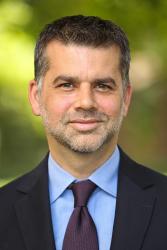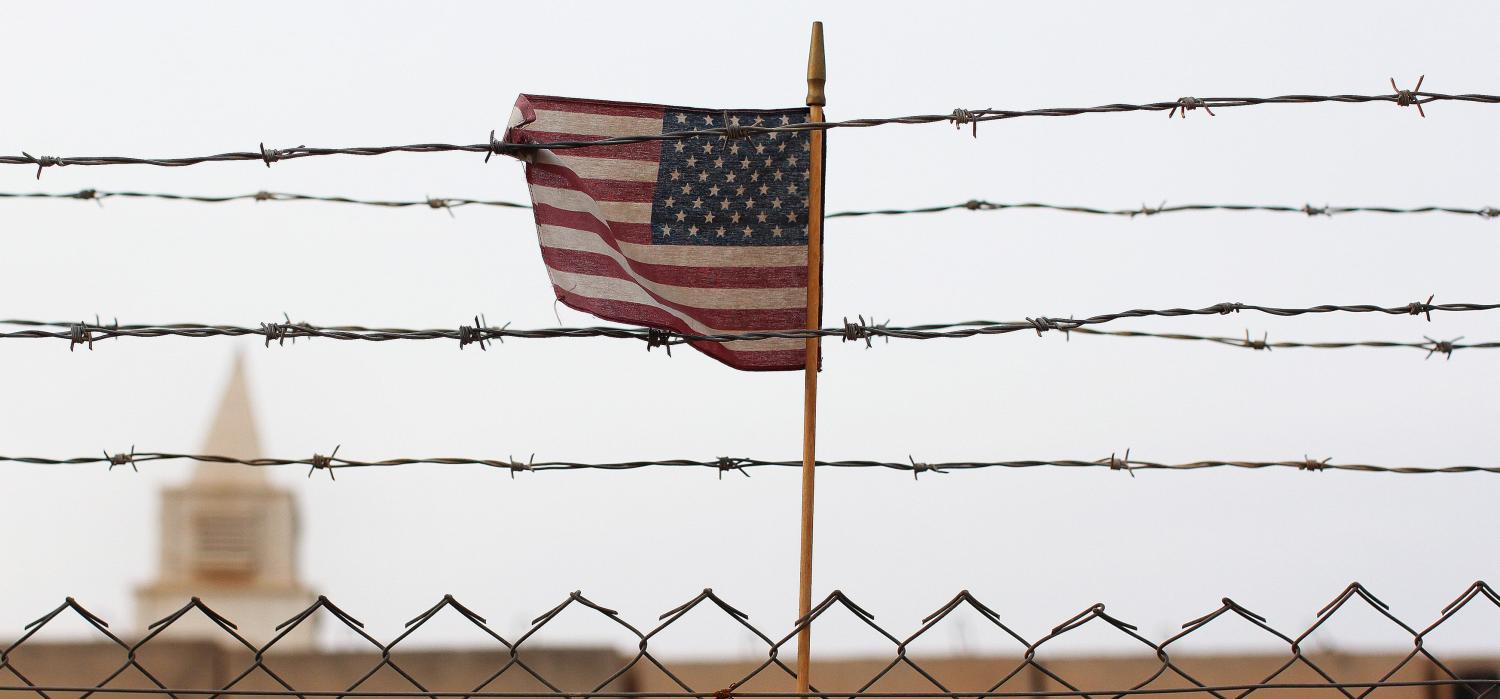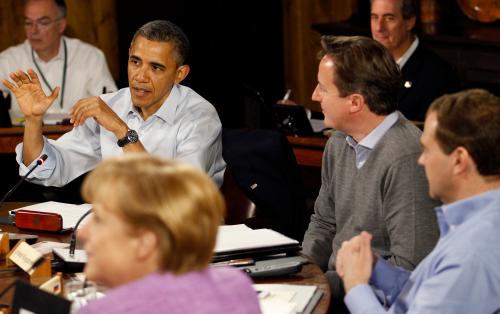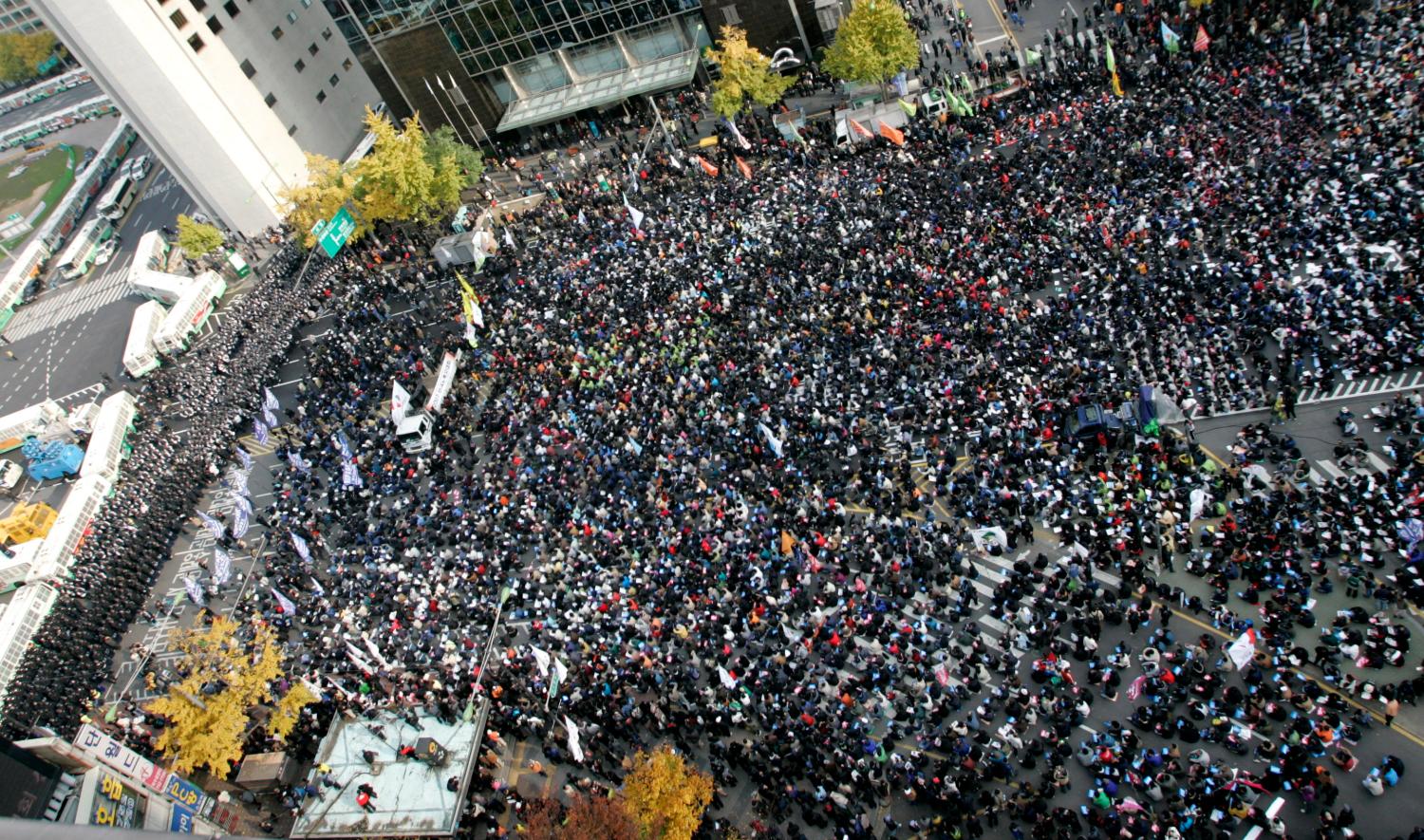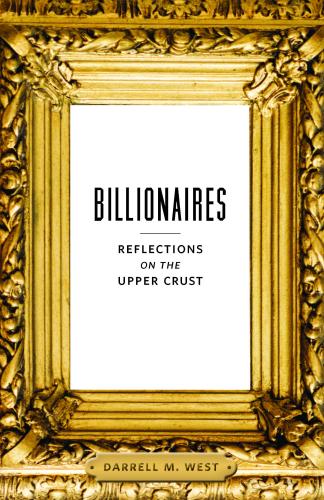The following brief is part of Brookings Big Ideas for America—an institution-wide initiative in which Brookings scholars have identified the biggest issues facing the country and provide ideas for how to address them. (Updated January 24, 2017)
 We live in a moment of global change and American self-doubt. In the space thus created, a variety of adventurers and evil-doers have carved out new opportunity, and conflict and tensions are rising. The current debate about America’s role in this uncertain world is dominated by two options, especially as relates to the unfolding and unyielding crises in the Middle East. The first, drawing on the tradition of American exceptionalism, focuses on U.S. military intervention. The second, based on a sense of fatigue and of poor outcomes from recent interventions, is a form of neo-isolationism.
We live in a moment of global change and American self-doubt. In the space thus created, a variety of adventurers and evil-doers have carved out new opportunity, and conflict and tensions are rising. The current debate about America’s role in this uncertain world is dominated by two options, especially as relates to the unfolding and unyielding crises in the Middle East. The first, drawing on the tradition of American exceptionalism, focuses on U.S. military intervention. The second, based on a sense of fatigue and of poor outcomes from recent interventions, is a form of neo-isolationism.
These are unsatisfying options. Isolationism in the face of mounting chaos in the Middle East and growing strategic uncertainty is proving to be an inept, possibly disastrous course. Inaction in the face of strategic crisis in Syria is as likely to protect American security as tariffs on Chinese goods are likely to restore American manufacturing; these are walls of sand. But there is little domestic support for a strategy based on American exceptionalism, and the concept has been damaged by a long period of failed policy in the Middle East—a region where our posture was premised on relations with autocratic allies and served to defend an increasingly antidemocratic and unstable order. We need a third way.
America’s Choice
The Office of the President of the United States is unlike any other in the contemporary world. The man or woman who sits in it not only controls the most powerful military on earth—by many reasonable measures, the most powerful army in history—he or she inherits a specific and special responsibility, a responsibility that the United States chose for itself at the end of the Second World War—that is, to use its economic, political, and military might to deter and prevent another of the great wars between major powers that so consumed the early part of the 20th century. Subsequent presidents of the United States have discharged that responsibility with varying degrees of humility and arrogance, skill and ineptitude, but all of them have spent at least a portion of their presidencies managing the deployment of American power for the purpose of avoiding a great power war. No other leader has a responsibility on the same scale. International critics have legitimately questioned how American misadventures contributed to the cold peace with the Soviets, or more recently, how the Iraq War contributed to maintaining the peace in the Middle East. Domestic critics of the left argue that by maintaining a global military presence the United States is acting imperially, and no doubt at times it has been. But in the main, the large bulk of American military power, deployed in forward bases in Asia and in Europe, helped to check aggression in those two theaters, preserve the security of these regions’ democracies, and avoid the outbreak of active hostility—with the attendant risk of nuclear escalation—among competing powers. These functions of American power are all crucial to the degree of peace we have had in key regions since the end of the Second World War, to say nothing of economic growth.
Critics of the right question why the United States should extend itself when friends and allies carry less than their share of the burden. And there is some logic in the critique. But what successive American presidents have come to understand is that the only real alternative to the United States playing these roles is not the United Nations, it is not a benign compact of the powers; it is a ruthless competition for power and security by the world’s least peaceful and least democratic forces. And in the modern era, not only will ruthless state leaders seek power in the space left unoccupied by American power but so too will the most virulent and most violent non-state groups and networks. Logic and history tell us that the result of the United States’ spending less effort to keep the peace means that these dangers will mount and become less and less manageable—ultimately posing greater direct risks to the United States—and be much harder to tackle when they eventually become too large to ignore. But this is a lesson easy to argue against and unpopular among the public, to say the least. And so, in 2017, the president of the United States will occupy the Oval Office and inherit this responsibility at a moment of flux. He will have to orient the American public and its national institutions to a rapidly evolving set of security challenges that lack the clarifying virtue of a single, simple menace. He will have to find the right balance between reassuring an uncertain world about America’s willingness to continue to exercise its responsible role while avoiding commitments that too far exceed the tolerance of the American people. And he will have to do so after the first election in three generations that threw into doubt the basic tenets of America’s postwar role.
A Time of Monsters
Part of the answer to the question of America’s role depends on the nature of the international situation and the threats we confront. Here, the next president will encounter a debate—indeed, some of the least edifying debates in contemporary American foreign policy. Is the whole world on fire? (No.) Is the challenge to American security posed by great powers or non-state actors? (The answer, quite obviously, is both.) Are we in a new Cold War? (No.) If not, are we in the world of author Steven Pinker’s “better angels,” moving steadily toward great peace? (Ask the Syrians.)
Despite the attacks of 9/11 and the reality of two American wars in the Muslim world, we have lived for almost a quarter century through a period of steadily declining violence and steadily rising wealth, all occasioned by the absence of a great power conflict. Now, though, violence is rising again, albeit mostly in the Middle East, and geopolitical tensions are on the rise. We have not entered a new Cold War, nor are we beset by threat on all fronts—exaggeration does us no good in this debate. But nor are we at a moment when the United States can afford to ignore international security or the world can afford for the United States to retreat into an isolationist stance.
This is a moment of testing, a time when a range of actors—from revisionist powers to regional upstarts to powerful non-state actors—are testing the existing international arrangements, seeking to weaken them or simply to find a more advantageous position within them. Vladimir Putin is not a new Stalin, but he is an ambitious and determined leader of a country that, while far from the power it once was, has concentrated its still-substantial assets in a small number of industries and state tools, including its military, and he has his hand directly on those tools and can wield them efficiently to a disruptive effect. Xi Jinping is not Chairman Mao, and China’s ambitions on the world stage, at this point in history, are less threatening than they are often made out to be. But his ambitions in the East Asian region are more assertive, and he is testing America’s presence (and patience) there and risks disrupting an East Asian peace that has held for 50 years and helped bring that region to the position it holds now as one of the main economic engines of the world. In the Middle East, everyone from the Iranians to the Qataris to al-Baghdadi of ISIS to Mohammed bin Salman of the House of Saud is testing the established order, and the result is a sharp rise in violence. More benignly, countries like Brazil and India and Indonesia are testing the boundaries of the established order on issues like the governance of the Internet, the rules that govern nuclear energy, and the financing of global development. Some of this testing is legitimate and warranted, even overdue. But some of it is violent and dangerous. Few of the challengers actually seek a collapse of the international peace. But they could cause it.
This coincides with a period of doubt in the West, occasioned in large part by two things: the loss of faith in free trade and globalization to generate benefits, which is triggering antiglobal politics writ large, and a sense of futility of action, generated by a series of losses from military action in the Middle East. Both are overstated in the current debate, but both play into a dangerous stasis and paralysis, not to mention demagogy.
Taken together, all this is generating a kind of senescence of the established order, an aging and withering from within. The risk is that this gradual erosion of established roles—for all their lapses, all their inadequacies—will snowball into something far more dangerous. Rarely has Antonio Gramsci’s famous quote seemed quite so apt: “The old is dying and the new cannot be born; in this interregnum a great variety of morbid symptoms appear.”1 A more pithy translation of the last part of this quote expresses perfectly the anxiety of our time: “Now is the time of monsters.”
On Whose Strength Can We Rely?
When American presidents have seen such dangers on the world stage, they have often been tempted to turn to great powers to ask them, too, to share the burden of keeping the peace. Time and again, these coalitions run aground on fundamental political differences and basic mistrust between the powers.
When great power cooperation (and the United Nations) fails, the alternative is the West. Throughout the Cold War, we relied on the West and the alliance system in which it is embedded to support American action and to help maintain the stability of Europe and Asia—to keep the peace, in short. Right now the West is weakened, to be sure, and looking inwards; and as a mobilizing concept, the West is not the powerful mobilizing idea that it once was, either in American domestic terms or internationally. So the next American president will have to remind us and the world that between the United States and its core European and Asian allies, the western democracies still account for more than 70 percent of global GDP and an even larger share of military spending—we can still act in the world if we summon the will to do so.
What’s more, American foreign policy has never stumbled on a justification for its extensive role in the Middle East that squares with the notion of American exceptionalism, responsibility, or the basic concept of keeping the peace. In Asia and in Europe, at least, American power and occasionally American force secures and protects a democratic order while preserving a stable or semi-stable peace. The American public is justifiably confused by our strategy in the region, such as it is, and understandably skeptical that throwing more American military resources into the mix will help.
And so, when American foreign policy elites call for American leadership, what the American public hears is “let’s engage in more unilateral, ill-considered military adventurism in the Middle East.” That’s an easy call to rebuff. Lost in the debate are the vital questions of securing stability and democracy in Asia and Europe.
And yet, faced with the horrors of Syria, who other than the United States should act to seek an end to the violence and the disorder it is occasioning?
Here’s the problem. We’ve built two international architectures to support our international engagement. First is a global one, anchored in the United Nations. Despite recurrent American cynicism about the UN, it does many useful things in the resolution of small wars. But the UN is ill equipped, politically or operationally, to tackle strategic crisis management in Europe or Asia or regional tensions in the Middle East, let alone to tackle the hell that is contemporary Syria. Then, second, we have a Western system grounded in NATO and the broader alliance arrangements. Despite critiques of the left, this is an absolutely vital pillar of international stability. But it is not a sufficient one. Putin has conceded that NATO can maintain the territorial defense of Europe; he’s not challenging it. Nor is China in any serious way challenging the territorial stability of Asia—though its temptation to do so might grow if America’s 7th Fleet withdrew from the Pacific. Rather, both are practicing what I call “insidious geopolitics”—using economic and political pressure to reshape the domestic politics of neighbors, or trying to. A military alliance is a necessary but not a sufficient response.
Burden Sharing for a Multipolar World
Between the unsatisfying notion of American exceptionalism and the false lure of isolationism, we need a vision for how to act to keep the peace in a world defined by a weakened West and an ill-formed rest.
What America needs, what the world needs, in this time of testing, is a new concept and a new architecture for action. It needs a new model of burden sharing for a multipolar world. Between the unsatisfying notion of American exceptionalism and the false lure of isolationism, we need a vision for how to act to keep the peace in a world defined by a weakened West and an ill-formed rest. Notwithstanding a routine reference to American decline or the rise of new powers, the United States remains the only power that can articulate this vision or that has a reasonable chance to build a sustained international coalition to support it.
Not every aspect of that vision can be spelled out here, but the broad principles on which America should lead seem clear. These are:
- To keep the peace. The rhetoric, signals, and actions of the use of American power should hew closely to the responsibility we’ve taken on since the end of the Second World War to maintain the global peace. When we deviate from that basic function and cast our role in terms of more assertive precepts, we lend credence to domestic and international critics about the misuse of our power and make it harder to maintain domestic and international support for our actions.
- Diplomacy backed by power. Diplomacy should always have pride of place in American strategy. But diplomacy will not always succeed: no amount of negotiation was going to stop Col. Qaddafi from brutal suppression of dissent and rebellion in Libya; no amount of negotiation is going to convince President Assad to sue for peace. The oldest lesson of American foreign policy is still the most germane: when America is in a position of strength—economically and militarily—it adds potency and effect to its diplomatic strategy.
- Act in concert, and create new “standing coalitions.” When we act in the world to maintain the peace, we should do so with as many friends and allies as possible. Easily said, hard to do. But we have to have the honesty to acknowledge to ourselves and to our friends that as vital as NATO is, it is not a sufficient response to today’s challenges and nor is the UN. If NATO and the UN are not sufficient tools, we need to create new ones. These should be built around those actors committed to keeping the global peace and willing to shoulder substantial responsibilities to do so. That will include a core of the West, but not all members of NATO, and should be open to participation by countries like India with a huge stake in global stability.
Rebuilding internationalism is the central challenge that confronts the next president of the United States.
Rebuilding internationalism is the central challenge that confronts the next president of the United States. It has to be rebuilt from the ground up—that is to say, it has to be rebuilt on a wide basis of American domestic support. This election has mobilized every corner of the American body politic that has been disadvantaged or dislocated by globalization, as well as some darker corners of American politics that cast themselves against “globalism” to paint a veneer over an underlying racism. The next president should address what is real and concerning in the dislocation caused by globalization; and he will have to act both to try to correct real dislocation (from technology as much as from globalization, but they go hand in hand) as well as push the new American racism back under the rock from whence it was liberated. And he has to recover an older argument about America’s security role in the world: not an argument based on American exceptionalism but an argument about keeping the global peace and underpinning an open international economy—a role that America need not and should not do alone but a role that cannot be done without the United States.
-
Footnotes
- Antonio Gramsci, “Wave of Materialism” and “Crisis of Authority,” Selections from the Prison Notebooks (New York: International Publishers, 1971), pp. 275–76.
The Brookings Institution is committed to quality, independence, and impact.
We are supported by a diverse array of funders. In line with our values and policies, each Brookings publication represents the sole views of its author(s).
